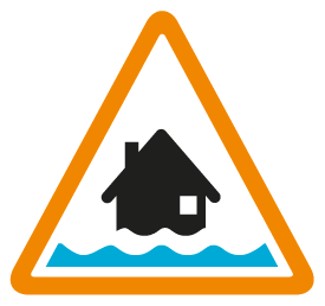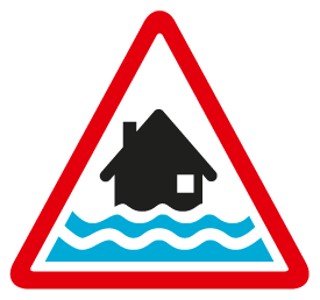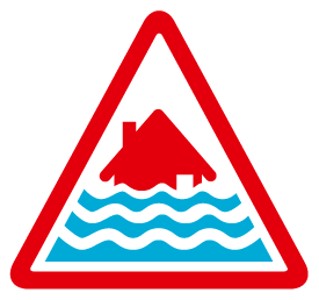Be Flood Prepared: Respond and Recover Quicker
Overview
Prepare: take control and be ready
Recover: protect your personal and financial wellbeing
Cleaning and repairs: getting back to normal
Introduction
This page is for residents and business owners at flood risk. You will find information on preparing for flooding, such as our free Flood Warning Service. We also provide practical advice on responding to flood alerts and warnings. These steps will increase your flood resilience, making getting back to normal after a flood easier, cheaper and faster.
The last sections are on recovery. Here you will find useful and practical information on looking after yourself and other, drying and cleaning your property and keeping safe when doing this.
Prepare: take control and be ready
Planning ahead for flooding is straightforward, quick and free. Getting ready before a flood saves you money on recovery and time spent out of the property. Meaning getting back to normal quicker.
Local Resilience Forums help to coordinate responses to emergencies such as flooding. You can find more local information for Hertfordshire and London as well as contact information.
Know your flood risk
Check here to see your flood risk level and where is comes from. Knowing this will help you prepare for future flooding.
Flood Warning Service
To prepare for main river flooding in the future, the Environment Agency manages the Flood Warning Service. We encourage all property owners at risk to sign up to this free service. It will give you advanced warning of potential flooding. You can do this here.
Met Office Weather Alerts
If you are at risk of surface water flooding, you can sign up to weather alerts here.
Develop flood plans
For all types of flooding, a personal flood plan helps you keep yourselves and most important possessions safe during a flood.
A community flood plan helps the community identify vulnerable people and trigger points for community-led response.
A business flood plan helps businesses to protect their valuables and employees, meaning they can get back to normal as quickly as possible.
Become a flood warden
Flood wardens provide a vital link between the at-risk community and us at the Environment Agency. Flood wardens inform the responsible government body of blockages that can cause flooding and help raise awareness among the community.
Flood wardens also tell us and the council about issues in the community, helping us build a better understanding of flooding in the area and help us develop more suitable approaches to reducing flood risk.
If you are interested and would like to know more, please contact HNLenquiries@environment-agency.gov.uk. Please include where you live so we can direct you to the appropriate team.
Report
Main river flooding: In an emergency, if you see anything that can lead to flooding in rivers (overgrown vegetation, blocked trash screens, objects blocking the river flow) call us: 0800 80 70 60
Help us build a better picture of flooding in your area by sending videos and pictures to HNLFloodData@environment-agency.gov.uk. Your information helps us develop better approaches to flooding. see 'Report flooding' document below for more information
Surface Water flooding: Report surface water flooding and anything that can lead to it (for example, blocked drains or gullys) to your local council.
Property Flood Resilience (PFR)
Property Flood Resilience is a set of modifications and products added to a building to reduce the amount of water entering a building. It can reduce flood damage and speed up recovery after a flood. These cannot elimate flood risk but they lower the impact and disruption of flooding.
While these measures are not free, communities with them installed recover faster and have cheaper recovery costs. Read more about PFR here
Respond: know what to do
When you sign up to our Flood Warning System, we will send out warnings and alerts when you are at risk of main river (fluvial) flooding.
Report flooding to our incident hotline: 0800 80 70 60

What should I do?
- Keep up with flood updates: Check for flooding - GOV.UK (www.gov.uk)
- Pack a bag with vital items like insurance documents and medications
- Check you know how to turn off your gas, electricity and water
- Plan how you will move your family and pets to safety

What should I do?
- Move family and pets to safety
- Move important items to safety
- Turn off gas, electricity and water supplies if it is safe to do so. DO NOT touch an electrical switch if you are standing in water
- If owned, use property protection products such as flood barriers and air brick covers
- Continue to monitor flood updates: Check for flooding - GOV.UK (www.gov.uk)

This is issued when flooding poses a significant threat to life.
What should I do?
- Call 999 if you are in immediate danger
- Follow any advice given from the emergency services
- Make sure you have an emergency kit including a torch, batteries, mobile phone and charger, important phone numbers, water, food, medicines and a first aid kit
- Alert your neighbours and offer help if it is safe to do so
- Avoid walking and driving through flood water, just 30cm of fast flowing water could move your car and even shallow moving water can knock you off your feet
- Keep yourself and family away from flood water, it may contain hidden dangers
- Wash your hands if you have been in contact with flood water
When you have received warnings, make sure you:
- Call 999 if you are in immediate danger
- Move your family and possessions to a high place.
- Check vulnerable family or neighbours are safe.
- Turn of gas and electrics before flood waters enter the property.
- Fill jugs and saucepans with clean water.
Recover: protect your personal and financial wellbeing
After a flood
After a flood, water levels may rise and fall for several weeks depending on drainage and any further rainfall.
Avoid entering flood water unless absolutely necessary. Flood water can be much deeper than it appears and hide dangers, such as uncovered manholes and sharp objects.
If you must enter flood water, move slowly and carefully, avoiding fast-moving water. Keep updated on weather reports. Call Floodline on 0345 988 1188 or visit Flood alerts and warnings - GOV.UK (check-for-flooding.service.gov.uk) for the latest flood warnings 24 hours a day.
If you do not have insurance, contact your local council for information on hardship grants or charities that may be able to help you.
If you are unclear or do not know, contact the National Flood Forum for support on 01299 403055, and the Association of British Insurers. Check Chapter 3 and Appendix 3 for more information.
Flood RE
Flood RE is a scheme designed for people who have experienced a flood. It provides help that could reduce the insurance cost homeowners pay in high flood-risk areas. Flood RE also gives homeowners access to affordable insurance premiums.
To find out more information, visit https://www.floodre.co.uk/
Looking after yourself
Mental health can be the last thing we think about after a flood when there are urgent matters that require our attention. Remember: flooding is stressful. It is normal to feel tired, anxious and have difficulty sleeping.
It is important to ask yourself how you are feeling and to reach out to friends, family or neighbours if you are feeling stressed or overwhelmed.
Healthcare professionals are aware mental health can suffer after flooding, so contact your GP practice or NHS 111. You can also speak to:
- The National Flood Forum, experts in helping people in these situations, if you feel you need support or assistance.
- NHS talking therapies
- Local flood wardens
- Community support groups
It is vital that you speak to children about how they are feeling. They will be experiencing the same emotions as you but probably be more confused. Talk to them about what is happening and reassure them they are safe.
Cleaning and repairs: getting back to normal
Do not overdo it when cleaning up. Tiredness, difficulty sleeping and anxiety are normal in these circumstances.
Wash your hands regularly, this is the most important way of removing harmful bugs and any chemicals found in flood water. Wash with warm, soapy water, then rinse and dry thoroughly after being in contact with flood water, sewage or any item that has been in the water.
Anyone with concerns for their health should contact their GP for advice or call NHS 111. To check your scheduled appointment is unaffected (eg GP, outpatient, inpatient at local hospital), use your local health service numbers.
NHS Choices is also a good source of local health service information www.nhs.uk/service-search.
Why your views matter
Inform us about flooding in Hertfordshire and north London: HNLFloodData@environment-agency.gov.uk see 'Report flooding' document below for more information
We are keen to work with local councils and community groups in at-risk areas. If you are a local council, charity or community group and you would like our support in preparing for, responding to and recovering from flooding, please get in touch!
Audiences
- Anyone from any background
Interests
- Business and industry
- Flood management
- Coastal management
- Water resources
- Drought
- Specific projects, issues, or activity pages

Share
Share on Twitter Share on Facebook